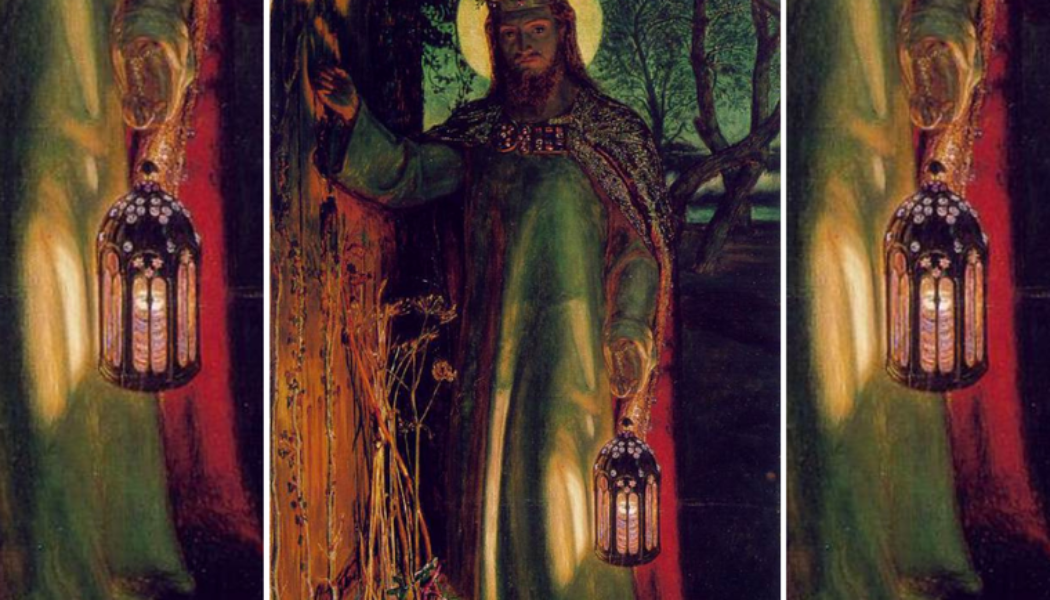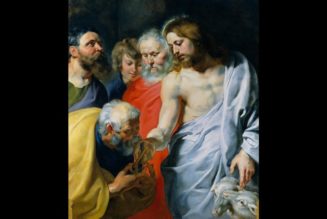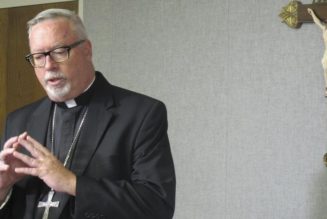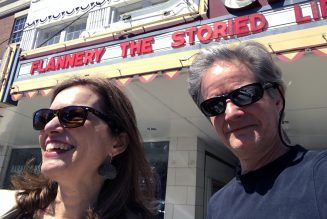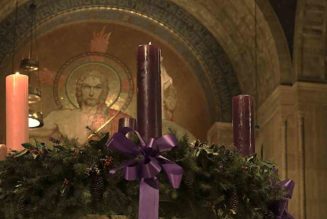
Editor’s Note: Hartford Archbishop Leonard Blair wrote the following homily for Laetare Sunday, the Fourth Sunday of Lent, and delivered it March 10 at St. Mary’s Church in New Haven, Connecticut. His homily begins at around the 20-minute mark in the video embedded below..
As a bishop, I have conferred the sacrament of Confirmation many times. As part of their preparation the candidates for this sacrament are expected to attend classes, go on retreats and do service projects.
This is all well and good, but I feel the need to tell them at the Confirmation liturgy that ultimately, Confirmation is not about what they have done or are doing — it’s about what God has done and is doing. Confirmation, like all the sacraments, is a gift freely and mightily conferred by God. It will be powerful in us to the extent that we open our hearts and put no obstacles in God’s way — to the extent that we dispose ourselves to receive what God wants to give.
Christianity is not at all a search for God, as people sometimes say about religion, especially today, when so many people, having abandoned the faith they were raised in, are looking for something to guide their lives. No, Christianity is a religion of Divine Revelation, of the God who first searches for us, who speaks to us — of the God who, as St. John says in one of his Epistles, “has first loved us” (1 John 4:19).
Our evangelical neighbors are fond of raising up signs at sporting events that say “John 3:16,” which is a verse taken from today’s gospel: “For God so loved the world that he gave his only Son.” This is the radical heart of Christian Revelation: that God so loved the world — not our love for God, but that he has loved us first.
Why does the all-holy, all-loving God do this despite the fact that his human creatures are so unholy and so unloving? Well, the only answer is Divine Mercy inspired by love. Paul says it: “God, who is rich in mercy, because of the great love he had for us, even when we were dead in our transgressions, brought us to life with Christ — by grace you have been saved” (Ephesians 2:4).
You see, it’s not something you and I do. We cannot save ourselves. We are all sinners. As I also tell our Confirmation candidates: Every great saint describes himself or herself as a forgiven sinner thanks to the mercy of God. Even the best of us are incapable of reaching God. But as Paul goes on to say: “By grace you have been saved through faith, and this is not from you; it is the gift of God; it is not from works, so no one may boast” (Ephesians 2:8-9).
Well then, should you just sit back and have a St. Patrick’s Day beer this week? Well, not exactly. If as believers you and I accept Jesus in faith as the Son that the Father has revealed, then we will strive to walk as Christ our Light has shown us. It means walking along the path of love for God above all things and our neighbor as ourselves. This is a lifetime journey, so we need to be both disciplined and patient with ourselves, just as God is patient with us.
Pope Francis writes, “We become fully human when we become more than human, when we let God bring us beyond ourselves in order to attain the fullest truth of our being. … God asks everything of us, yet at the same time, he offers everything to us.”
This holy season of Lent only intensifies and focuses what we should be striving to do all the time: to deepen our faith and walk toward the light, the light which is none other than Christ himself.
I don’t think there is a more wrenching passage in all of Scripture than Christ’s words today: “This is the verdict, that the light came into the world but people preferred darkness to light, because their works were evil. For everyone who does wicked things hates the light and does not come toward the light, so that his works might not be exposed” (John 3:19-20).
This is nothing new. We see it in our first reading from the Old Testament: “How God’s people added infidelity to infidelity, practicing abominations, mocking the messengers of God, despising his warnings, scoffing at his prophets” (2 Chronicles 36:16). When we hear those words we have to ask: are we talking about 2024 BC or 2024 AD? “Added infidelity to infidelity, practicing abominations, mocking the messengers of God, despising his warnings, scoffing at his prophets.”
What we are witnessing today is nothing less than a great battle for people’s souls in a culture that is trying to redefine God and Jesus, his Gospel and his Church — to redefine the God-given institutions of marriage, family, morality and even lordship over life itself. And many indeed are they who “prefer darkness to light, because their works are evil, who hate the light and do not come toward the light, so that their works might not be exposed.”
What about us? What is that part of our life that needs to be exposed this Lent to the spiritual light of Christ in the confessional so that we can become the saints, the forgiven sinners, that we are called to be?
Remember: “God so loved the world …” For as Paul also says, “We are his handiwork, created in Christ Jesus for the good works that God has prepared in advance, that we should live in them” (Ephesians 2:10). Amen.
[embedded content]
Archbishop Leonard Blair leads the Diocese of Hartford in Connecticut. He currently serves as the chairman of the Committee on Divine Worship for the United States Conference of Catholic Bishops.
